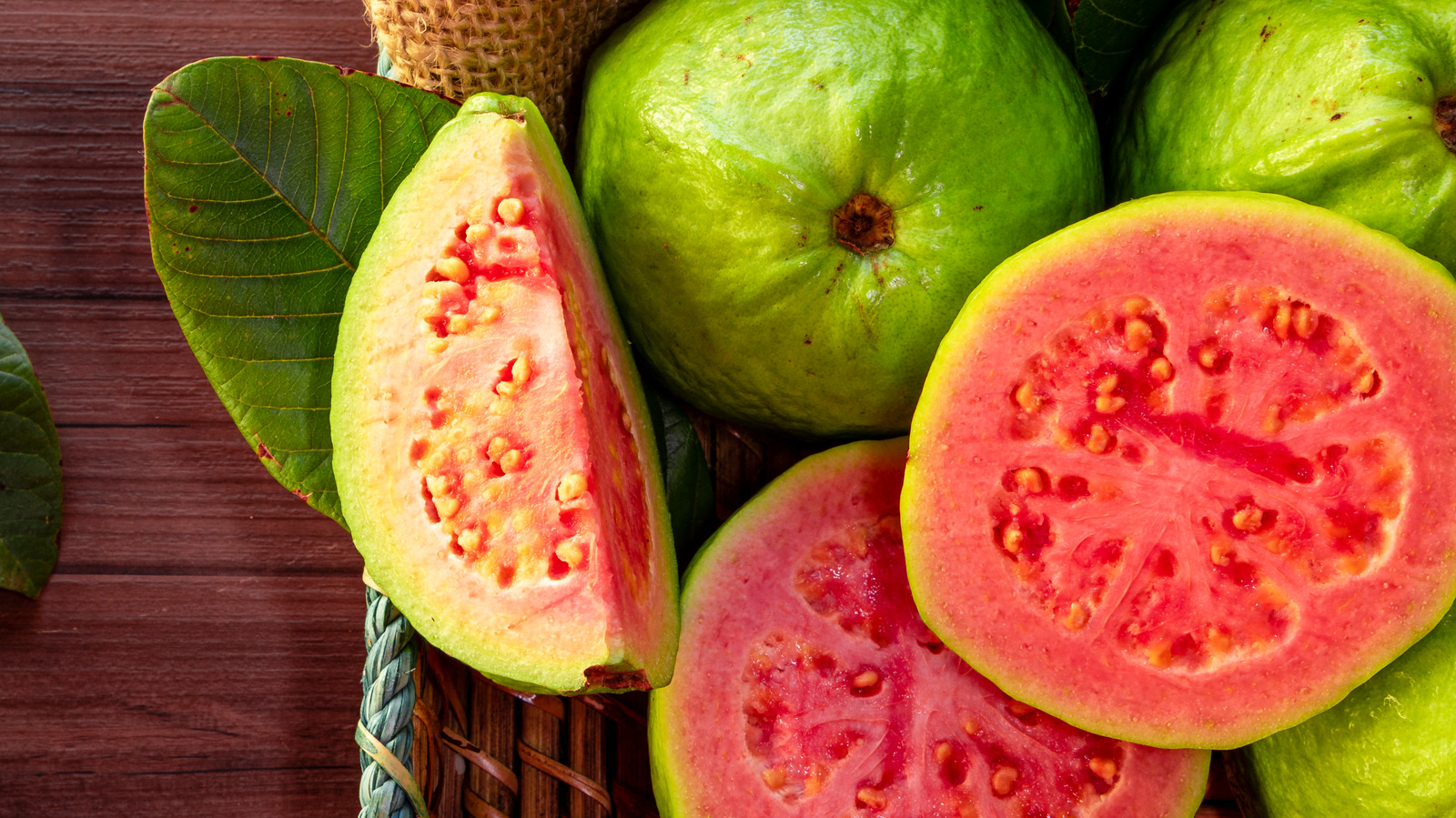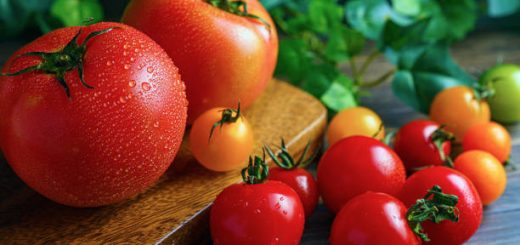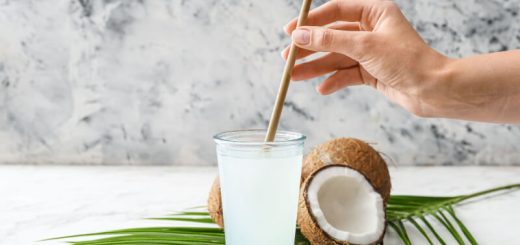15 Proven Health Benefits Of Quava Fruit That You Didn’t Know

1. It Promotes Weight Loss
The fiber content of the fruit may help boost one’s weight loss efforts. The fruit is also low in calories. A medium guava contains about 38 calories and can be included in a weight loss diet.
2. It Reduces Cancer Risk
Apart from vitamin C, guava also contains lycopene. Both these antioxidants help reduce cancer risk. They may also prevent the proliferation of cancer cells. Guavas are especially powerful in aiding the treatment of cancers of the breast and prostate.
Guavas contain fiber. This nutrient helps reduce the risk of hemorrhoids and colon cancer.
Other studies state that guava leaf extracts also could help reduce cancer risk.
READ ALSO: 10 Ways Of Curing And Preventing Athlete’s Foot, And Symptoms
3. It Protects The Skin From Wrinkles And Premature Aging
Guava contains antioxidants. These compounds can protect skin from UV damage and potentially delay the signs of aging. The vitamins A and C in guava play a role in enhancing skin firmness.
Guava leaf extracts possess anti-inflammatory properties that help in the treatment of acne.
READ ALSO: 12 Amazing Health Benefits Of Sweet Orange That You Didn’t Know
4. It Improves Skin Complexion
There is less research in this regard. Guavas may keep skin fresh and boost complexion. However, if you are easily prone to allergies, check with your doctor before using guava on your face.
5. It Improves Your Vision
The vitamin A in guava may boost vision. This nutrient is known to cut down the risk of cataracts and macular degeneration. The abundant vitamin C in the fruit also contributes to better vision.
6. It Helps Prevent Cough
Guava leaf extracts possess anti-cough properties. In studies done on rats and pigs, water extracts of the leaves had decreased the frequency of cough.
7. It Relieves Tooth pain
Guava leaves possess antimicrobial, anti-inflammatory, and analgesic properties that may help relieve toothache. The leaves may also be of use in the treatment of periodontal disease.
8. It Helps You Manage Diabetes
The fiber in the fruit can lower blood sugar levels. It can also prevent constipation, a common problem faced by individuals with diabetes.
An Indian study states that guava (without the peel) can help in lowering blood sugar and blood cholesterol levels. This cuts the risk of diabetes. Animal studies show that guava leaf extracts may have antihyperglycemic effects against type 2 diabetes.
9. It Protects Your Heart
The fiber in guava lowers bad cholesterol, which may otherwise contribute to heart disease. The potassium in the fruit can help lower blood pressure levels.
The polysaccharides (a type of carbohydrate) in guava leaves act as antioxidants and fight oxidative stress. This is important because oxidative stress is one major cause of heart failure.
Guava leaves, when used as tea, may also help prevent atherosclerosis.
10. It Boost Your Body Immunity
Guava is replete with vitamin C (9). Studies state that vitamin C can help boost immunity and fight the disease-causing pathogens.
Vitamin C also protects your body’s cells from damage. It may reduce the risk of serious diseases, like arthritis, cancer, and some forms of heart disease. Ensure you have the fruit ripe as it contains the most vitamin C.
11. It’s Beneficial During Pregnancy
Guava is a good source of folate. The nutrient cuts the risk of birth defects and is essential during pregnancy.
12. It Eases Your Stress
Guava contains magnesium. This nutrient is known to relax the body’s nerves and muscles and may ease stress. Some studies suggest that magnesium may help relieve anxiety in individuals, although more evidence is needed in this regard.
13. It Stimulates Cognitive Functions
Guava contains vitamins B6 and B3 that are known to promote cognitive health. Vitamin B6 has shown to reduce the risk of dementia, cognitive decline, and depression. In animal studies, vitamin B3 had shown improvements in neurodegeneration.
Jesse Feder, RDN, once said, “Guava is high in sugar and can affect your blood sugar. It contains a good amount of B6 and B3, which contribute to healthy brain cell function and blood flow. Guava can increase blood sugar levels due to its high sugar content and should be eaten in moderation.”
14. It Relieves Menstrual Symptoms
In a study, 197 women with dysmenorrhea (painful menstruation) found relief after taking 6 mg of a drug containing guava extracts per day.
Another rat study revealed the spasmolytic effects of guava leaf extract. The extract could relieve cramps of the uterine smooth muscles.
15. It Boost Digestive Health
One guava can give you about 12% (3 grams) of the recommended dietary fiber. Some sources suggest that the leaves of the fruit may treat nausea and vomiting. However, more research is needed to establish these effects.
Medical literature also states that guava can treat diarrhea due to its antimicrobial and antispasmodic properties. This is especially true with the extracts of the fruit and the leaves.
Guava’s antimicrobial properties can also fight the harmful gut microbes (like simian rotavirus) and potentially prevent digestive infections.
In summary
Guava fruit could be among the healthiest additions to your diet. It offers several nutrients in adequate amounts. In the following section, we will further explore the nutritional profile of guava.
Guava Nutrition Facts
| CALORIE INFORMATION | ||
|---|---|---|
| Amounts Per Selected Serving | %DV | |
| Calories | 112(469 kJ) | 6% |
| From Carbohydrate | 84.9(355 kJ) | |
| From Fat | 13.1(54.8 kJ) | |
| From Protein | 14.1(59.0 kJ) | |
| From Alcohol | 0.0(0.0 kJ) | |
| CARBOHYDRATES | ||
| Amounts Per Selected Serving | %DV | |
| Total Carbohydrate | 23.6 g | 8% |
| Dietary Fiber | 8.9 g | 36% |
| Starch | 0.0 g | |
| Sugars | 14.7 g | |
| PROTEIN & AMINO ACIDS | ||
| Amounts Per Selected Serving | %DV | |
| Protein | 4.2 g | 8% |
| VITAMINS | ||
| Amounts Per Selected Serving | %DV | |
| Vitamin A | 1030 IU | 21% |
| Vitamin C | 377 mg | 628% |
| Vitamin D | ~ | ~ |
| Vitamin E (Alpha Tocopherol) | 1.2 mg | 6% |
| Vitamin K | 4.3 mcg | 5% |
| Thiamin | 0.1 mg | 7% |
| Riboflavin | 0.1 mg | 4% |
| Niacin | 1.8 mg | 9% |
| Vitamin B6 | 0.2 mg | 9% |
| Folate | 80.8 mcg | 20% |
| Vitamin B12 | 0.0 mcg | 0% |
| Pantothenic Acid | 0.7 mg | 7% |
| Choline | 12.5 mg | |
| Betaine | ~ | |
| MINERALS | ||
| Amounts Per Selected Serving | %DV | |
| Calcium | 29.7 mg | 3% |
| Iron | 0.4 mg | 2% |
| Magnesium | 36.3 mg | 9% |
| Phosphorus | 66.0 mg | 7% |
| Potassium | 688 mg | 20% |
| Sodium | 3.3 mg | 0% |
| Zinc | 0.4 mg | 3% |
| Copper | 0.4 mg | 19% |
| Manganese | 0.2 mg | 12% |
| Selenium | 1.0 mcg | 1% |
| Fluoride | ~ | |
One guava contains 126 mg of vitamin C, which meets a whopping 209% percent of your daily recommended values. The fruit also contains 229 mg of potassium, 343 IU of vitamin A, and 27 mcg of folate. These are among the most important nutrients in the fruit.
However, does this mean you can eat as many guavas as you want? Or would it cause any adverse effects?




